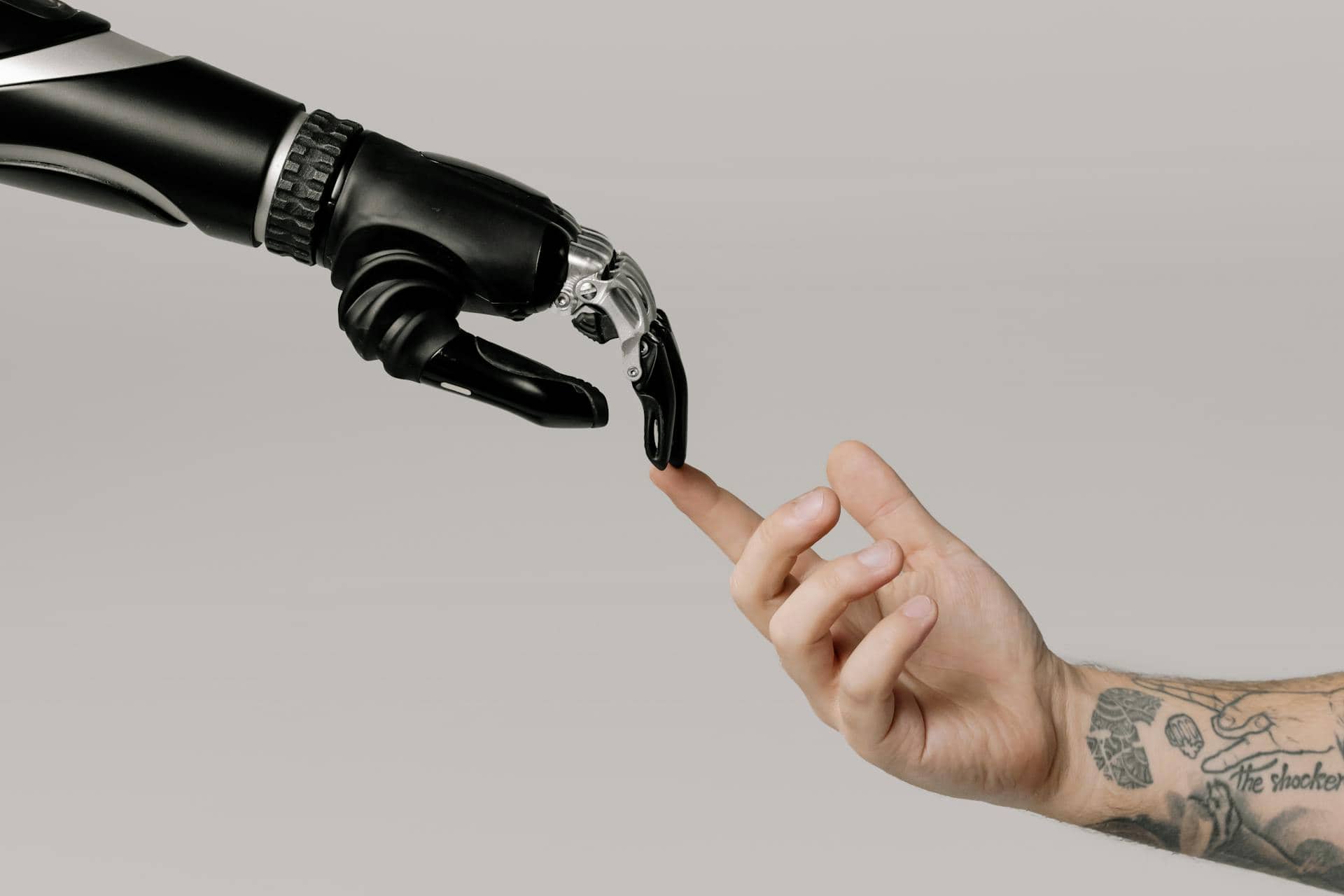Imagine you’re a healthcare professional managing the complexities of modern medicine. Artificial Intelligence (AI) is now transforming your field, making medical diagnosis more accurate and personalized treatments more attainable.
AI can sift through vast amounts of data to find patterns that might elude even the most experienced doctors. But it’s not just about better outcomes; AI also streamlines administrative tasks, allowing you to focus more on patient care.
However, these advancements come with their own set of challenges, particularly around data privacy and bias in AI models. So, what does this mean for the future of healthcare?
Medical Diagnosis
AI’s integration into medical diagnosis greatly enhances accuracy and efficiency, enabling healthcare providers to detect diseases with unprecedented precision. By leveraging deep learning algorithms and machine learning techniques, you’re able to analyze large datasets and uncover intricate disease patterns that might elude human eyes. This technology markedly reduces human errors and saves valuable time, providing real-time assistance that can be pivotal in critical situations.

Imagine being able to detect conditions like skin cancer, diabetic retinopathy, pneumonia, and appendicitis with high accuracy. AI makes this possible, transforming how you approach medical imaging. Machine learning algorithms can swiftly identify abnormalities in X-rays, CT scans, and MRIs, ensuring faster and more precise diagnoses. This means you can make informed decisions quickly, potentially saving lives.
AI is also revolutionizing clinical laboratory testing. In fields like microbiology, AI enhances accuracy and speed, especially when selecting antibiotic treatments. By automating tasks and optimizing processes, AI helps you deliver better patient care. You can trust AI to handle complex analyses, freeing up more time for you to focus on direct patient interactions and other critical tasks.
Treatment Applications
Harnessing AI in treatment applications revolutionizes personalized medicine by tailoring therapies to individual genetic profiles. Imagine having a treatment plan that’s just right for your unique genetic makeup. AI makes this possible by analyzing genetic data to recommend personalized therapies.

Here are some ways AI is transforming treatment applications:
- Predicting Therapy Responses: Machine learning algorithms analyze your genetic data to predict how well you’ll respond to specific treatments, ensuring you get the most effective therapy with fewer side effects.
- Accelerating Drug Discovery: AI speeds up the drug discovery process by analyzing vast datasets to identify promising compounds and predict their toxicity, making precision medicine more accessible.
- Optimizing Interventions: Predictive analytics help healthcare providers determine the best interventions for you, reducing costs and enhancing treatment outcomes.
- Automating Public Health Tasks: AI technologies streamline tasks like treatment planning and population health management, improving accuracy and efficiency in managing public health.
Patient Engagement
In addition, greatly building on the transformative power of AI in treatment applications, you can also experience enhanced patient engagement through AI-driven tools and technologies. AI-driven chatbots and virtual assistants provide 24/7 support, answering your medical queries promptly. This instant access to information fosters a sense of constant care and reassurance.
Personalized health recommendations based on AI analysis of your data contribute to improved engagement and adherence to treatment plans. By receiving tailored advice, you’re more likely to follow through with your healthcare regimen. Additionally, remote monitoring devices powered by AI enable you to actively participate in your health management, leading to better outcomes and increased involvement in your own care.
AI tools like predictive analytics anticipate your needs and offer proactive care interventions. This means your healthcare services are tailored specifically to you, enhancing your engagement by addressing issues before they become critical.
Moreover, patient portals and mobile apps equipped with AI features facilitate seamless communication between you and your healthcare providers. This promotes active involvement in healthcare decision-making, ensuring you’re always informed and engaged in your treatment process.
Administrative Uses
Leveraging AI in healthcare administration streamlines complex tasks like scheduling, billing, and resource management, greatly reducing administrative burdens. Imagine AI-powered systems handling the tedious and time-consuming activities that often bog down healthcare facilities. You can now focus more on patient care and less on paperwork.
AI chatbots and virtual assistants efficiently manage patient inquiries, appointment scheduling, and insurance verification. These tools not only save time but also enhance patient satisfaction by providing instant responses and support.
Here’s how AI is transforming administrative tasks:
- Scheduling: AI algorithms predict patient cancellations and optimize appointment slots, ensuring better resource utilization.
- Billing: Automated billing systems reduce errors, speed up the revenue cycle, and guarantee accurate claims processing.
- Resource Management: AI analyzes data to forecast patient demand, thereby optimizing staff schedules and resource allocation.
- Workflow Optimization: AI-driven systems streamline hospital workflows, improving patient flow and operational efficiency.
Workforce Implications
AI’s integration into healthcare means clinicians will need to adapt and develop new skills to effectively collaborate with these advanced technologies. You’ll find that AI isn’t here to replace you but to augment your capabilities. By learning how to interpret AI-generated data and insights, you can make more informed decisions and provide better patient care. This collaboration will likely involve new job designs that incorporate AI technologies alongside human expertise.
To stay relevant, you’ll need to become proficient in the use of AI tools and understand their limitations. Think of AI as a colleague that excels at processing vast amounts of data quickly and accurately. This means you can focus more on patient interactions and complex decision-making, while AI handles routine tasks and data analysis.
Additionally, the efficiency and accuracy AI brings to medical diagnoses and patient care can reduce the likelihood of errors and improve overall treatment outcomes.
Embracing AI means you’ll be part of a future healthcare workforce where human clinicians and AI systems work together seamlessly. By keeping ahead of these changes, you’ll guarantee that you remain an integral part of this evolving landscape.

Ethical Considerations of AI
While adjusting to AI in healthcare enhances your capabilities, it’s equally important to address the ethical considerations that arise. AI systems, especially those using deep learning, can lack transparency, making it challenging to understand how they reach certain conclusions. This opacity poses a significant challenge when ensuring patient safety and trust.
Accountability is another critical issue. When AI makes a mistake in diagnosing a patient, determining who’s responsible becomes complex. Is it the software developer, the healthcare provider, or the institution? This ambiguity can undermine patient confidence in AI-driven diagnoses.
Algorithmic bias is also a major concern. AI systems can inadvertently perpetuate existing biases if their training data isn’t representative of diverse patient populations. This can lead to unequal treatment and outcomes.
To navigate these challenges, consider the following:
- Transparency: Ensure AI systems are designed with clear, understandable decision-making processes.
- Accountability: Establish clear guidelines on who’s responsible for AI errors.
- Bias Mitigation: Use diverse, representative datasets to train AI models.
- Governance: Implement robust governance mechanisms to oversee the ethical deployment of AI in healthcare.
Addressing these ethical considerations is essential for the responsible and effective integration of AI into healthcare.
Future Trends of Artificial Intelligence
The future of artificial intelligence in healthcare promises groundbreaking advancements that will reshape patient care and administrative processes. You’ll see AI-driven tools like robotic process automation (RPA) and chatbots increasingly handling routine administrative tasks, freeing up time for healthcare professionals to focus on patient care.
Machine learning algorithms will master diagnosis and treatment recommendations, making healthcare more precise and personalized. Expect AI to play a pivotal role in precision medicine. By analyzing genetic data and other health records, AI can predict how you’ll respond to certain treatments, offering more effective and tailored healthcare solutions. This means fewer trial-and-error approaches and quicker, more efficient care.
The healthcare workforce will evolve into a blend of human clinicians and AI systems. AI won’t replace doctors but will augment their capabilities, providing real-time assistance and insights that can greatly improve outcomes. Imagine AI-powered tools that help surgeons during operations or systems that continuously monitor patient vitals, alerting staff to any issues immediately.
As these technologies advance, they’ll enhance overall healthcare offerings, making them more accessible and efficient. The integration of AI into healthcare represents a future where patient care is smarter, faster, and more effective.
Challenges and Limitations
Tackling the challenges and limitations of AI in healthcare often starts with addressing the important issue of data collection and patient privacy. For AI systems to be effective, they need vast amounts of high-quality data. However, patient privacy concerns and data security issues hinder this process. Here’s a closer look at the main challenges:
- Data Collection: High-quality data is hard to come by due to stringent privacy laws and regulations. Without sufficient data, AI models can’t be trained effectively.
- Patient Privacy: Protecting patient information is paramount. Any breach in data security can lead to significant trust issues and potential harm to patients.
- Limited Data Availability: Often, the available data isn’t diverse enough, which can lead to biases in AI models. This limitation makes it difficult for AI to generalize well across different patient populations.
- Data Breaches: Unauthorized access to healthcare data by corporations or hackers raises serious security concerns, potentially compromising patient information and trust.
Addressing these challenges requires a balanced approach that guarantees data availability while safeguarding patient privacy. By focusing on ethical AI applications and robust data protection measures, you can help realize the full potential of AI in healthcare.
The Future of AI in Healthcare
In modern healthcare, AI is transforming how you receive medical care, from accurate diagnoses to personalized treatments. You benefit from improved patient engagement and streamlined administrative processes.
However, to truly harness AI’s potential, we’ve got to tackle data privacy concerns and biases in AI models. Embrace the future of healthcare with AI, but stay mindful of the ethical implications and challenges that come with it.
Together, we can create a smarter, more efficient healthcare system.




